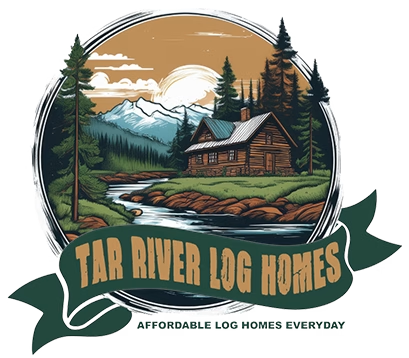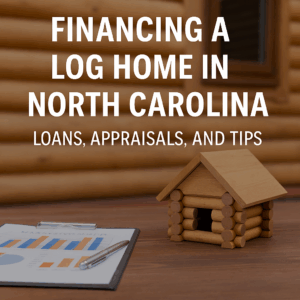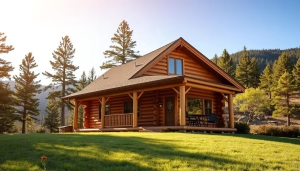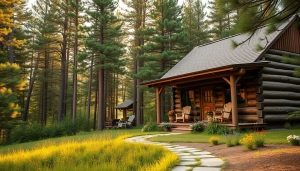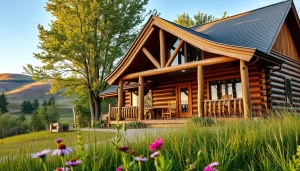Financing a log home in North Carolina usually involves construction loans that convert to permanent mortgages. Appraisals compare your log home to similar properties, and lenders may require detailed plans and builder contracts. Strong credit, a down payment of 10–20%, and choosing an experienced log home builder improve your chances of approval.
Introduction
Buying or building a log home in North Carolina is exciting, but one of the most important steps is figuring out how to pay for it. Financing a log cabin isn’t the same as financing a traditional stick-built house. Lenders often ask for extra details, and appraisals can be tricky if there aren’t many similar log homes nearby.
In this post, we’ll cover loan options, the appraisal process, and practical tips to help you secure financing for your North Carolina log home.
Loan Options for Log Homes in NC
1. Construction-to-Permanent Loan
- Covers the cost of building.
- Converts into a standard mortgage once construction is complete.
- Usually requires a down payment of 10–20%.
2. Land + Construction Package Loan
- Ideal if you’re buying land and building at the same time.
- Bundles the land and home financing into one loan.
3. Specialty Log Home Lenders
- Some lenders specialize in log homes and understand their long-term value.
- May offer more flexible appraisal requirements.
How Log Home Appraisals Work in NC
Appraisals determine your home’s value and directly affect loan approval.
- Comparable Sales (Comps): Appraisers look for recent log home sales nearby. If there aren’t enough, they may use stick-built homes as partial comparisons.
- Plans & Specifications: Detailed blueprints, kit costs, and builder contracts are essential for accurate valuation.
- Location Factors: Mountain areas like Boone or Asheville may have higher values than rural flatland sites.
Tips for Securing Financing
- Work with a lender experienced in log homes to avoid delays.
- Prepare detailed cost breakdowns including kit price, labor, and finishing.
- Budget for site prep like grading, driveways, and utilities.
- Maintain strong credit and save for a 10–20% down payment.
- Choose a reputable builder (like Tar River Log Homes partners) to give lenders confidence.
FAQ
Yes, but typically only after the home is completed. Most buyers start with a construction loan that converts into a mortgage.
Not necessarily. In areas with many log homes, appraisals are straightforward. In regions with fewer comps, appraisers may be conservative.
Most lenders require 10–20% down, similar to other types of construction loans.
Financing a log home in North Carolina requires planning and the right lending partner. By understanding your loan options, preparing for the appraisal process, and working with experienced builders, you can simplify the journey to owning your dream cabin.

